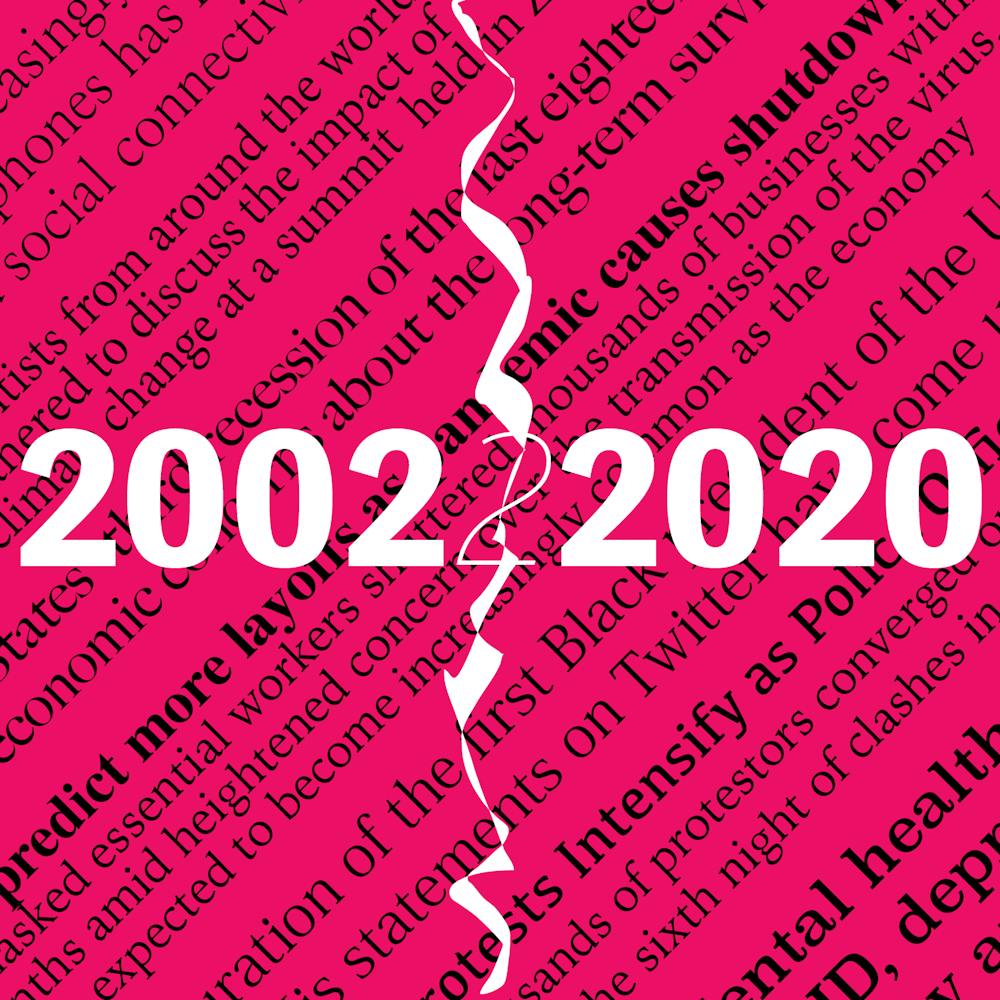Twenty American University theater freshmen on Sept. 25 and 26 attempted to answer a big question during their performance, “Overture 200222020:” what is it like to be 18 right now?
“The different incoming freshmen were born right around 2002, after one sort of major world crisis with 9/11, and then they find themselves here, starting college in 2020 [in] this complicated year,” professor Aaron Posner said.
Each year, University theater freshmen put on a show entitled “Overture.” It is not a class, but rather gives the newest members of the Department of Performing Arts the opportunity to be included in a performance during their first semesters.
Through songs, monologues, scenes, comedy and the occasional TikTok reference, the students this semester virtually worked through this overarching idea of newfound adulthood on a Zoom call performance. The students wrote every part of the show, covering topics such as technology, generational difference, racial issues, familial issues, mental health, loss, loneliness and the intersection of these topics.
Each student was responsible for muting and unmuting their Zoom mic and turning on and off their cameras, which frequently changed how many students you saw on the screen at once. Zoom’s feature that hides “non-video participants,” allowed students to disappear, effectively mimicking leaving the stage during an in-person performance.
“[With] most of the freshmen not on campus, or anywhere near campus, it became both a freshman opportunity to perform, but also just a chance to connect and get to know the other people in the theater department,” Posner said.
Posner, an associate professor in the Department of Performing Arts, guided students through writing and performing this show as their creative director. He had creative help from Nia Nicole Smith, a theater performer and teaching artist from Silver Spring, and Cat Ashley, a recent AU theater graduate.
“It's been really fascinating and enjoyable to engage with them around what makes this time and their life unique,” Posner said.
At the end of the approximately hour-long performance, the students and the creative team did a Q&A portion with the audience where they reflected on the process of creating this show in a virtual setting, never having met each other in person or having lived on AU’s campus.
One student joked that they didn’t know how tall the others are or what pants they wear since Zoom only provides a shoulders-up view.
Others commented on the learning curve that was performing for a laptop, mentioning that emoting and talking to a little green dot at the top of your laptop screen is not the same as performing for a live crowd that innately reacts to your actions. When performing to the green dot, you have to imagine the response, students said.
Regardless of the potential setbacks of the platform, the students said they still believe they managed to view each other as family.
“I hope that people will learn the way I have learned by listening carefully to what 18 year olds are thinking of,” Posner said in the interview. “For those who are actually 18 and listening to it, they might find it like, ‘Oh yeah, that feels very familiar, exactly what I understand.’ For their parents and friends and family friends and other professors and other people at AU, I hope it will be as informative and as eye-opening as it has been for me.”


